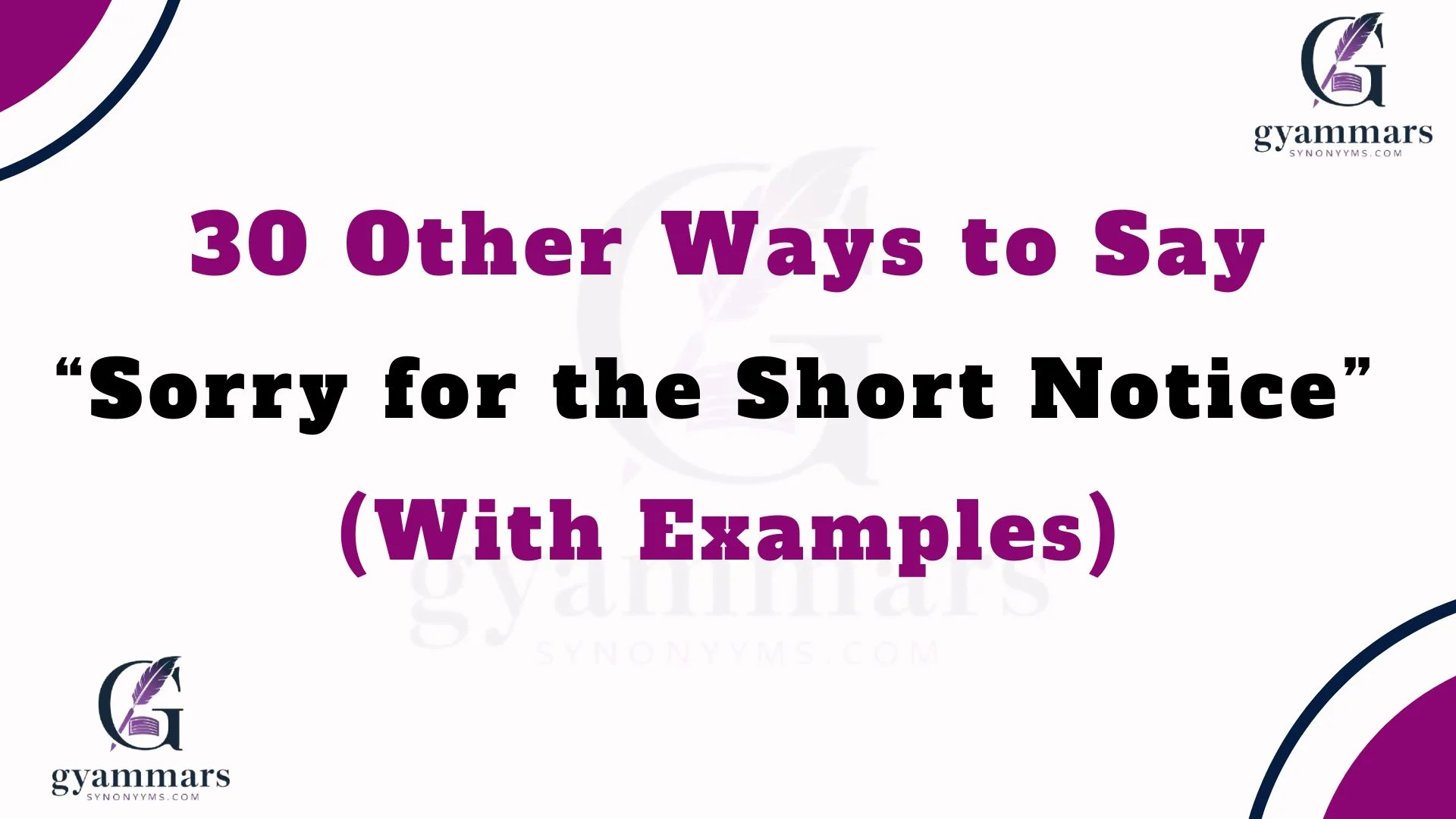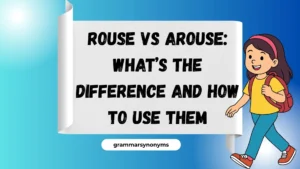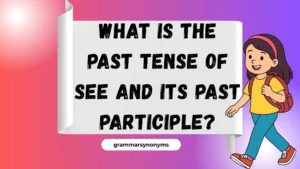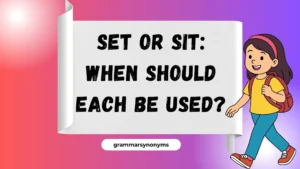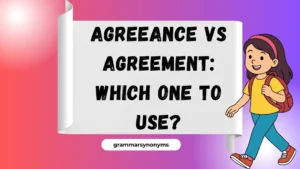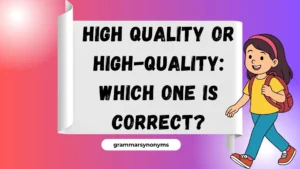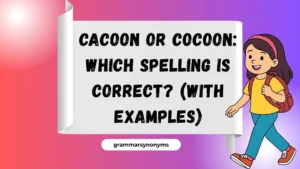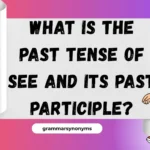Finding the right words to express care and professionalism in your emails can make all the difference. When you need to apologize for a last-minute message or request, saying “Sorry for the short notice” is common—but it can sometimes sound repetitive or overly formal. Using thoughtful alternatives not only softens your tone but also shows empathy, respect, and awareness of the other person’s time.
Below, you’ll find 30 meaningful alternatives to say “sorry for the short notice” that fit a variety of contexts—from business updates to personal messages—complete with definitions, examples, tones, and best uses.
What Does “Sorry for the Short Notice” Mean?
The phrase “Sorry for the short notice” is a polite apology used when informing someone about something with little or no prior warning. It acknowledges that the timing is tight and expresses consideration for the recipient’s schedule.
It’s often used in emails, messages, or calls when plans change suddenly, meetings are rescheduled, or urgent actions are required. Essentially, it says, “I understand this may be inconvenient, and I appreciate your flexibility.”
Is It Professional or Polite to Say “Sorry for the Short Notice”?
Yes — it’s absolutely professional and polite to use this phrase. It shows you respect the recipient’s time and are mindful of unexpected requests. However, overusing it or using it in inappropriate situations can make your communication seem rushed or unprepared.
That’s why having alternative phrases allows you to match the tone, urgency, and relationship level of your message more precisely — whether it’s to a manager, colleague, or client.
Pros and Cons of Saying “Sorry for the Short Notice”
| Pros | Cons |
| Shows empathy and politeness | Can sound repetitive or generic |
| Maintains professionalism | May imply poor planning if overused |
| Works across formal/informal settings | Doesn’t always fit friendly or casual tones |
| Softens last-minute requests | Lacks personalization if used too often |
By varying your language, you sound more genuine and intentional, leaving a positive impression even in urgent communications.
Synonyms For “Sorry for the Short Notice”
- I apologize for the late notice
- Please excuse the short notice
- Thank you for your understanding
- I hope this isn’t too last-minute
- Apologies for the sudden request
- I realize this is short notice
- I appreciate your flexibility
- Apologies for the inconvenience
- Sorry for the delay
- I wanted to reach out as soon as possible
- Thank you for accommodating this on short notice
- I hope this works despite the timing
- Apologies for the rush
- Sorry for the quick turnaround
- I know this comes at the last minute
- Appreciate your patience on this
- Thanks for bearing with me
- I understand the timing is tight
- Apologies for the overlap
- I know this isn’t ideal timing
- I appreciate your prompt attention
- Thanks for adjusting on such short notice
- Sorry for the sudden change in plans
- Please bear with the short notice
- My apologies for the limited lead time
- I hope this reaches you in time
- Thank you for being so accommodating
- Sorry this came up unexpectedly
- Apologies for the short lead time
- I truly appreciate your understanding given the circumstances
1. “I Apologize for the Late Notice”
Definition: A formal and polite way to acknowledge that the message came later than ideal.
Detailed Explanation: Best used in professional settings like work emails, business correspondence, or client updates. It expresses accountability and respect.
Scenario Example:
“I apologize for the late notice, but we’ll need to move our meeting to 3 PM tomorrow.”
Best Use: Corporate or business emails.
Tone: Professional, respectful.
Additional Notes: Works well with managers, clients, and formal communication.
2. “Please Excuse the Short Notice”
Definition: A gentle and courteous request for understanding when timing is tight.
Detailed Explanation: It adds a softer touch than “sorry,” emphasizing mutual respect.
Scenario Example:
“Please excuse the short notice, but we’ve received updated data that we’ll review today.”
Best Use: Emails where you want to maintain a positive relationship.
Tone: Polite, diplomatic.
Additional Notes: Perfect for internal communication or formal apologies.
3. “Thank You for Your Understanding”
Definition: Focuses on gratitude instead of apology, shifting tone positively.
Detailed Explanation: A great phrase to use when you want to acknowledge the inconvenience without over-apologizing.
Scenario Example:
“Thank you for your understanding — I realize this update came on short notice.”
Best Use: When addressing colleagues or clients you have an ongoing relationship with.
Tone: Appreciative, positive.
Additional Notes: Reduces negative tone while maintaining courtesy.
4. “I Hope This Isn’t Too Last-Minute”
Definition: A friendly and casual expression that shows awareness of timing.
Detailed Explanation: Great for informal professional emails or personal messages.
Scenario Example:
“I hope this isn’t too last-minute, but can we reschedule our lunch to Thursday?”
Best Use: Colleagues, teammates, or acquaintances.
Tone: Conversational, warm.
Additional Notes: Keeps communication light and human.
5. “Apologies for the Sudden Request”
Definition: A more formal variant of “sorry for the short notice.”
Detailed Explanation: Conveys urgency but still sounds professional and composed.
Scenario Example:
“Apologies for the sudden request, but could you review this by end of day?”
Best Use: Time-sensitive professional requests.
Tone: Formal, respectful.
Additional Notes: Avoid overusing in non-urgent contexts.
6. “I Realize This Is Short Notice”
Definition: A self-aware and polite acknowledgment of timing.
Detailed Explanation: Sounds natural and sincere, perfect for both formal and casual contexts.
Scenario Example:
“I realize this is short notice, but could we hop on a quick call today?”
Best Use: Email requests, project updates, or invitations.
Tone: Polite, honest.
Additional Notes: Great balance of formality and empathy.
7. “I Appreciate Your Flexibility”
Definition: Centers on gratitude and cooperation rather than apology.
Detailed Explanation: Works beautifully in situations where changes are unavoidable.
Scenario Example:
“I appreciate your flexibility — the meeting agenda has been adjusted slightly.”
Best Use: Internal communication or collaborative work.
Tone: Positive, appreciative.
Additional Notes: Encourages goodwill and teamwork.
8. “Apologies for the Inconvenience”
Definition: A classic professional apology for any disruption caused.
Detailed Explanation: Common in business settings when last-minute changes impact others.
Scenario Example:
“Apologies for the inconvenience — we’ll send the updated report shortly.”
Best Use: Customer or client-facing messages.
Tone: Formal, respectful.
Additional Notes: Works well in service or client relations.
9. “Sorry for the Delay”
Definition: A simpler, direct expression of apology for lateness.
Detailed Explanation: Ideal for when your notice or message is delayed but still manageable.
Scenario Example:
“Sorry for the delay — just wanted to confirm our call for tomorrow.”
Best Use: Internal team updates.
Tone: Casual, polite.
Additional Notes: Best for light, non-critical communication.
10. “I Wanted to Reach Out as Soon as Possible”
Definition: Highlights intent and initiative, not lateness.
Detailed Explanation: Frames your message as proactive rather than apologetic.
Scenario Example:
“I wanted to reach out as soon as possible regarding tomorrow’s meeting.”
Best Use: Positive tone emails where urgency is justified.
Tone: Professional, proactive.
Additional Notes: Subtly apologetic without negative focus.
11. “Thank You for Accommodating This on Short Notice”
Definition: Shows gratitude for flexibility with timing.
Detailed Explanation: Great for meetings, collaborations, and last-minute tasks.
Scenario Example:
“Thank you for accommodating this on short notice. I really appreciate your help.”
Best Use: When someone adjusts their schedule for you.
Tone: Appreciative, respectful.
Additional Notes: Perfect for professional courtesy.
12. “I Hope This Works Despite the Timing”
Definition: A kind and humble way to express awareness.
Detailed Explanation: A gentle tone acknowledging the inconvenience.
Scenario Example:
“I hope this works despite the timing — we’d love your input.”
Best Use: Collaborative emails.
Tone: Warm, cooperative.
Additional Notes: Ideal for creative or teamwork settings.
13. “Apologies for the Rush”
Definition: Polite acknowledgment that you’re asking for something urgently.
Detailed Explanation: Keeps tone professional and empathetic.
Scenario Example:
“Apologies for the rush, but could you review this draft today?”
Best Use: When deadlines change suddenly.
Tone: Professional, considerate.
Additional Notes: Works well in workplace communications.
14. “Sorry for the Quick Turnaround”
Definition: Expresses empathy for tight deadlines.
Detailed Explanation: Perfect for work settings involving deliverables.
Scenario Example:
“Sorry for the quick turnaround — your feedback is needed by noon.”
Best Use: Task requests or project updates.
Tone: Professional, concise.
Additional Notes: Shows awareness of workload.
15. “I Know This Comes at the Last Minute”
Definition: Honest and humble phrasing that sounds natural.
Detailed Explanation: Adds warmth while acknowledging inconvenience.
Scenario Example:
“I know this comes at the last minute, but can we adjust tomorrow’s schedule?”
Best Use: Both formal and casual emails.
Tone: Friendly, sincere.
Additional Notes: Perfect for softening requests.
16. “Appreciate Your Patience on This”
Definition: Focuses on patience and understanding.
Detailed Explanation: Avoids sounding overly apologetic.
Scenario Example:
“Appreciate your patience on this — the update came through just now.”
Best Use: When explaining unexpected changes.
Tone: Appreciative, positive.
Additional Notes: Great for ongoing teamwork.
17. “Thanks for Bearing with Me”
Definition: A casual and friendly phrase expressing appreciation.
Detailed Explanation: Suitable for informal or semi-professional relationships.
Scenario Example:
“Thanks for bearing with me — I know this update is last-minute.”
Best Use: Teammates or close colleagues.
Tone: Friendly, relaxed.
Additional Notes: Avoid in strictly formal contexts.
18. “I Understand the Timing Is Tight”
Definition: Empathetic acknowledgment of scheduling difficulty.
Detailed Explanation: Shows respect for others’ time while remaining composed.
Scenario Example:
“I understand the timing is tight, but your input would be valuable.”
Best Use: Client or stakeholder communication.
Tone: Respectful, understanding.
Additional Notes: Great for collaborative tone.
19. “Apologies for the Overlap”
Definition: Ideal when your request collides with another commitment.
Detailed Explanation: Professional and precise.
Scenario Example:
“Apologies for the overlap — we had to shift our timeline unexpectedly.”
Best Use: Team coordination or scheduling conflicts.
Tone: Formal, clear.
Additional Notes: Sounds responsible and organized.
20. “I Know This Isn’t Ideal Timing”
Definition: Expresses empathy for bad timing in a gentle tone.
Detailed Explanation: Keeps message humble yet understanding.
Scenario Example:
“I know this isn’t ideal timing, but I wanted to loop you in early.”
Best Use: Project updates or quick announcements.
Tone: Soft, understanding.
Additional Notes: Balances honesty and courtesy.
Read More : 30 Other Ways to Say “In the Text It States” (With Examples)
21. “I Appreciate Your Prompt Attention”
Definition: A professional and respectful phrase showing gratitude for urgency.
Detailed Explanation: Encourages a quick response while staying polite and appreciative.
Scenario Example:
“I appreciate your prompt attention — this update came through just this morning.”
Best Use: Business correspondence or managerial communication.
Tone: Formal, appreciative.
Additional Notes: Keeps the focus on action and cooperation rather than apology.
22. “Thanks for Adjusting on Such Short Notice”
Definition: A warm, gratitude-based alternative for expressing thanks for flexibility.
Detailed Explanation: Balances empathy and appreciation, perfect for teams or partners.
Scenario Example:
“Thanks for adjusting on such short notice — I truly appreciate your support.”
Best Use: Team collaborations or meeting reschedules.
Tone: Friendly-professional, appreciative.
Additional Notes: Excellent for maintaining goodwill in long-term relationships.
23. “Sorry for the Sudden Change in Plans”
Definition: A clear and straightforward apology acknowledging unexpected changes.
Detailed Explanation: Suitable for both formal and personal messages where plans shift abruptly.
Scenario Example:
“Sorry for the sudden change in plans — our meeting will now be virtual.”
Best Use: Meeting or schedule updates.
Tone: Sincere, considerate.
Additional Notes: Reflects responsibility and awareness.
24. “Please Bear with the Short Notice”
Definition: A soft and respectful request for understanding.
Detailed Explanation: Implies empathy while subtly apologizing for the situation.
Scenario Example:
“Please bear with the short notice, but the report deadline has been moved forward.”
Best Use: Internal updates and announcements.
Tone: Courteous, professional.
Additional Notes: Excellent balance between apology and humility.
25. “My Apologies for the Limited Lead Time”
Definition: A formal and polished way to express regret for lack of preparation time.
Detailed Explanation: Perfect for business or client communications where timing matters.
Scenario Example:
“My apologies for the limited lead time — we’ve just confirmed the event schedule.”
Best Use: Professional settings and client relations.
Tone: Formal, respectful.
Additional Notes: Sounds tactful and sincere without over-apologizing.
26. “I Hope This Reaches You in Time”
Definition: A kind and hopeful way to recognize urgency without pressure.
Detailed Explanation: Works when sharing updates or requests near deadlines.
Scenario Example:
“I hope this reaches you in time — please see the attached proposal.”
Best Use: Professional emails requiring action soon.
Tone: Polite, considerate.
Additional Notes: Adds human warmth to professional language.
27. “Thank You for Being So Accommodating”
Definition: Expresses deep appreciation for someone’s understanding of timing.
Detailed Explanation: Shifts focus from apology to gratitude.
Scenario Example:
“Thank you for being so accommodating about the last-minute schedule change.”
Best Use: Team appreciation or follow-up notes.
Tone: Appreciative, sincere.
Additional Notes: Ideal for building trust and maintaining relationships.
28. “Sorry This Came Up Unexpectedly”
Definition: A casual and honest admission of an unforeseen situation.
Detailed Explanation: Works when something truly came out of nowhere.
Scenario Example:
“Sorry this came up unexpectedly, but could we move our meeting to Thursday?”
Best Use: Friendly or internal communications.
Tone: Casual, transparent.
Additional Notes: Avoid in highly formal contexts.
29. “Apologies for the Short Lead Time”
Definition: A refined and concise way to sound professional and accountable.
Detailed Explanation: Best used in business environments with tight project timelines.
Scenario Example:
“Apologies for the short lead time — we’ll deliver the materials as discussed.”
Best Use: Client and project communications.
Tone: Polished, professional.
Additional Notes: Common in logistics, event planning, and management.
30. “I Truly Appreciate Your Understanding Given the Circumstances”
Definition: A warm and empathetic phrase emphasizing gratitude and understanding.
Detailed Explanation: Adds emotional intelligence and professionalism in one line.
Scenario Example:
“I truly appreciate your understanding given the circumstances — thank you for your patience.”
Best Use: Sensitive or urgent professional situations.
Tone: Compassionate, professional.
Additional Notes: Ideal closing line when timing is unavoidable.
💡 Conclusion
Finding the right words to replace “Sorry for the short notice” helps you maintain professionalism without sounding repetitive or overly apologetic.
Whether you’re writing to a client, teammate, or manager, choosing the right phrase reflects empathy, awareness, and emotional intelligence.
Use gratitude-based alternatives like “Thank you for your flexibility” to keep your tone positive, or more formal ones like “My apologies for the limited lead time” for business settings. The key is to show care for others’ time and convey respect in every word.
❓FAQs
1. Can I use “Sorry for the short notice” in formal emails?
Yes, it’s perfectly acceptable. However, try more polished alternatives like “I apologize for the late notice” for a professional tone.
2. What is a more polite version of “Sorry for the short notice”?
“Please excuse the short notice” or “My apologies for the limited lead time” sound more formal and respectful.
3. How can I make my apology sound sincere in emails?
Use specific language that shows awareness of timing and gratitude — e.g., “I appreciate your patience with this sudden update.”
4. Is it unprofessional to send short-notice emails?
Not always. Emergencies happen. Just ensure you acknowledge the timing and thank the recipient for flexibility.
5. What tone should I use in last-minute messages?
Aim for a balanced tone — polite, empathetic, and respectful — without being overly apologetic. Acknowledge the timing, but stay solution-focused

“Emma Brooke at Grammar Synonyms is your trusted source for mastering the art of language. Whether you’re looking for the perfect synonym, refining your grammar, or searching for that one ideal phrase, we’ve got you covered. With a wealth of tools and resources, Emma Brooke brings you creative solutions for all your writing needs, making sure your words always hit the mark. Unlock a world of language possibilities and elevate your writing with ease.”
